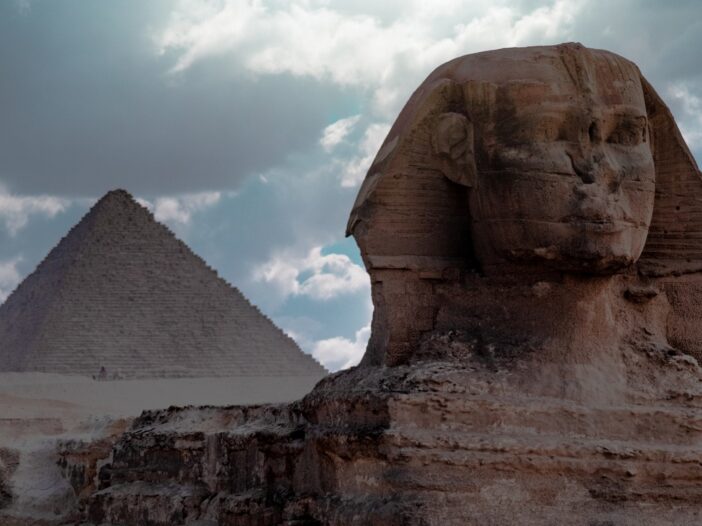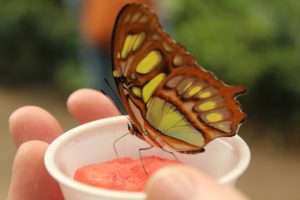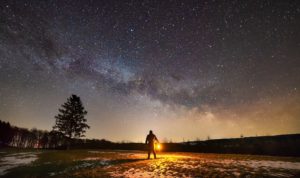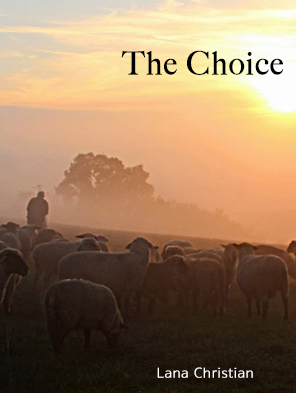
Thanksgiving is in two days. Oddly, talking about thankfulness has prompted me to think about … plagues. (Not COVID. The Egyptian variety.)
Before you conclude that I’ve completely lost my mind, hear me out.
Remember the story of Moses and the ten plagues that God brought upon Egypt?
A friend of mine got me to wondering WHY THOSE plagues. I mean, I hate spiders. So why didn’t God do a plague of spiders? Ditto for snakes. I’m totally with Indiana Jones on hating snakes.
Could be there’s more to the story of the plagues than meets the eye.
First, a quick review of them, in order (Exodus 7–12):
- Water turning to blood
- Frogs
- Lice
- Flies
- Livestock pestilence
- Boils
- Hail
- Locusts
- Darkness for three days
- Killing of firstborn children
Many people have theorized how those plagues could have occurred under natural circumstances. A volcanic eruption seems to carry the most credence. A big one did occur around 1620–1600 BC on an island south of Greece. Winds could have carried toxic ash to Egypt; cinnabar in the ash turned the Nile red; frogs jumped out of the Nile to escape the toxins, but the frogs died. With no frogs to eat the flies, they swarmed everywhere. Acid rain caused boils on people’s skin … You get the picture. It’s plausible, save for this detail: it can’t explain how the Israelites weren’t affected by the plagues.
The Bible says there was no hail where the Israelites lived. They didn’t fumble through darkness so thick that it could be touched. And so on.
Here’s where things get really interesting.
The Egyptians worshipped about two thousand deities. (How did they keep them all straight?)
Now let’s line up each plague with major Egyptian gods. Note: the gods usually were depicted as having a human body with an animal’s head.
As you move down the list, notice how:
1) Each plague correlates with the Egyptians’ depiction of the god who supposedly could control and prevent those kinds of calamities
2) Each plague’s severity increases along with the increasing power accorded to that god
| Plague | Egyptian god | Depicted as | The god’s job(s) | |
| 1. | Water into blood | Hapi | Blue-skinned man personifying the Nile | Flooding the Nile each year (deposits silt to grow crops) |
| 2. | Frogs | Heket | Frog | Fertility |
| 3. | Lice | Geb | [many depictions] | The dust of the earth |
| 4. | Flies | Khepri | Fly | Helped with movement of the sun |
| 5. | Livestock | Hathor | Cow | Love, beauty, music, dancing, fertility, pleasure; protector of women |
| 6. | Boils | Isis | [many depictions] | Principal deity connected with the dead; her magic could revive the deceased |
| 7. | Hail | Hefnut or Nut | Lioness Waterpot on her head |
All forms of moisture Goddess of the sky |
| 8. | Locusts | Seth | Composite of many animals | Storms and chaos |
| 9. | Darkness | Ra | Falcon | King of all deities; ruled all the world and heavens; was the sun |
| 10. | Firstborn died | Heka | A man carrying a staff entwined with two serpents (our caduceus, today’s symbol of the medical profession) | Magic and medicine; the concept of vital force and life |
First God took away the Egyptians’ lifestyle. Then their livelihood. Then their life.
I think God picked those particular plagues to do more than make life increasingly miserable for the Egyptians. He picked THOSE plagues to show the Egyptians that He alone controlled what each of those gods supposedly controlled.
God’s progression of the plagues ultimately showed that He alone had power over even life and death.
It was His way of telling the Egyptians, “Your idols don’t control anything. I alone am God over all creation. Now know Me.”
That correlates beautifully with the first commandment, “You shall have no other gods before me” (Exodus 20:3). That means more than “don’t make anything else more important than me.” It literally means, “Don’t put anything before My face.”
In other words, “Don’t let anything else occupy space in My presence. Don’t set anything side by side with Me or in addition to Me.”
That’s what God means when He says He’s a jealous God. And rightly so. Nothing can compare to Him.
We are to live in His presence, under His authority, to His honor and glory. What a privilege.
That’s what I am most thankful for this Thanksgiving.
Father God, forgive me when I try to put anything on Your altar except myself, humble and obedient before You. You alone are worthy of all praise, glory, honor, and power. I will never have enough breath to say thank you for how great and good You are. You make Yourself known in countless ways. Show me more of You so I may praise You all the more. Amen.
God pursues His glory and our good, both with missional intent to make Himself known to everyone. Share on XNever miss a post!





Leave a Comment